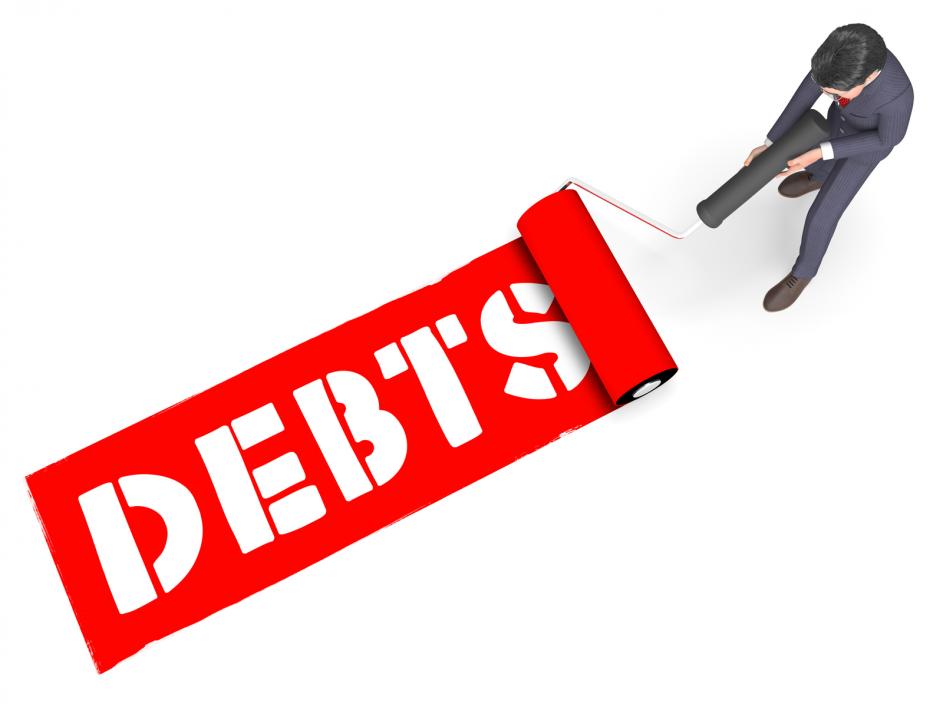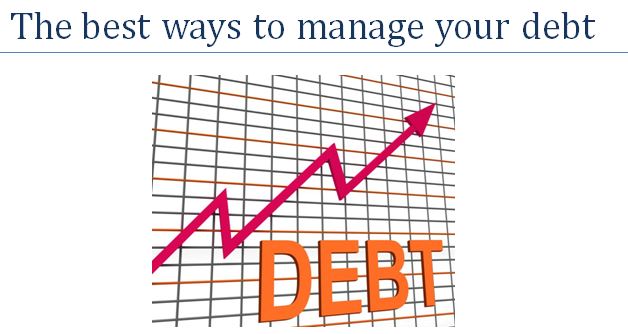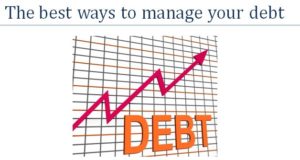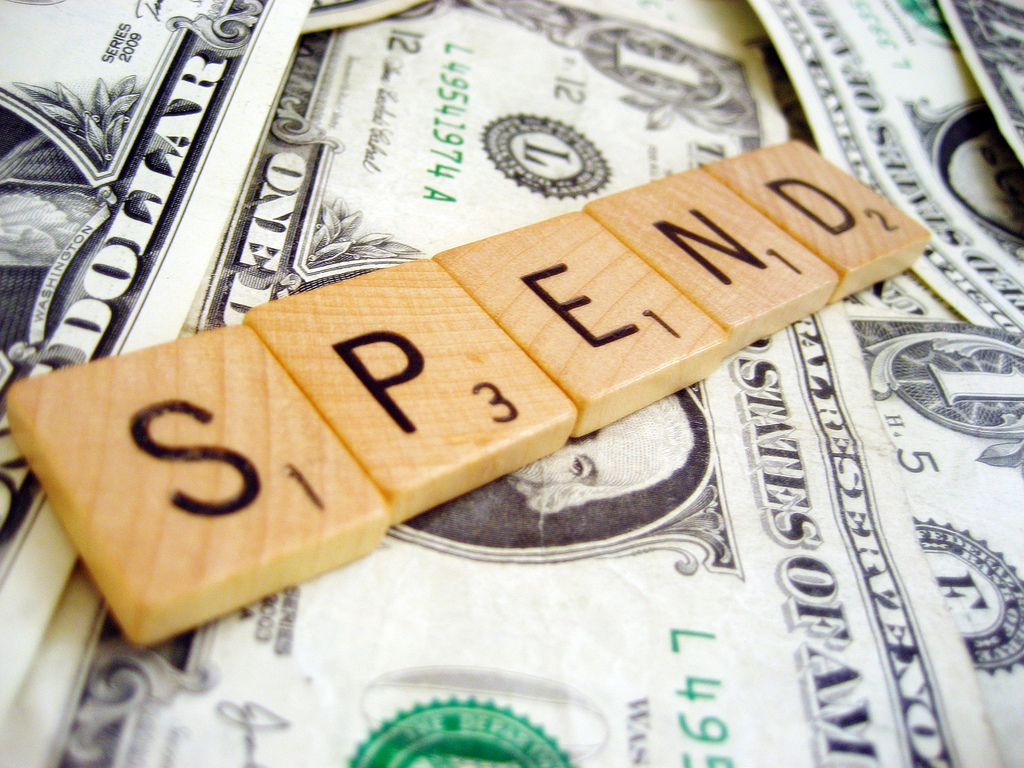
by admin | Bankruptcy, Consumer Proposal, Credit Counseling, Credit Repair

In today’s world, a debt becomes bad when you are no more capable of repaying it on time. However, in reality not all the debts are bad in nature. Since the majority of us are into debt of multiple forms, we can divide these debts into good debt, a bad debt or to make it worse an ugly debt.
How can debt be a good debt?
As strange as it may sound, a good debt may make us live a life that we always wanted to. It helps us in having a better lifestyle. Many of us want to live in a big house and to have a big car, which is only possible by taking out a loan since not all of us can make cash payments. While it is important to maintain the affordability factor of these houses or cars, buying a commodity that does not suit your affordability may ultimately leave you with a bad debt.
Therefore, a good debt is the one that is taken and paid in time, without disrupting your payment schedule rather than the loan whose repayments rely on the uncertain credit alternatives.
How to deal with a bad debt?
A debt becomes a bad debt when you fail to make timely payments of it. The items bought with a bad debt may fall into the category of ‘wants’ than a necessity. While you may fail to afford the payments of this loan from the start, it is likely that you become incapable of paying a loan later on as well.
Since such debts hold a high rate of interest, therefore, if your financial situation changes to worse, this may leave you with a debt which you’re not able to pay currently. This may be a cause of losing a job unexpectedly or let’s assume an uncertain situation that disrupts your payment schedule badly and hence, changing your good debt into a bad one.
Is debt really bad for us?
In the case of a bad debt, the first thing that requires consideration is the proper planning and management of the money. This may also include the bills and finances; therefore, you must be aware of all of your bills and finances while keeping track of your expenditures.
Simply review how much you are spending, review the growing fixed and variable expenses and check your spending pattern on a weekly basis. While this will help you in assessing your financial standing, it might convert your unmanageable debt into a manageable one.
Therefore, understanding the value of budgeting, the power of setting financial goals and most importantly staying debt free are some of the basic practices that we should all adopt. By this way, we can easily cope with the situations like marital breakdowns, job loss or health issues that can drastically push a good debt over the edge of a bad one and ultimately into insolvency.
In bottom line
A debt is simply a way to make things happen. However, the secret to making it a good or a bad debt lies solely in the way of managing it with due diligence and prior planning to maintain an adequate financial standing throughout.

by admin | Debt Management

It is not unusual to find yourself in a little debt every now and then. However, if you are not careful with your expenditures, your debts could skyrocket very quickly. As your debts grow, your credit score will deteriorate and it will become harder and harder for you to borrow from the lenders. Eventually, you might find yourself in a position where you are unable to pay your debts and this could have serious financial consequences for you.
Let’s look at some of the ways you can bring your debt under control.
Make on time loan repayments
Make a list of all your debtors and the amounts you owe them. Note down the payment due dates and keep your list updated as your debt amount changes. Try not to miss any repayment due dates. Lenders usually charge a late fee if you miss an installment. Depending on your loan contract, some lenders can also increase the interest rate they charge from you if you keep missing repayment due dates.
It is a good idea to create a monthly repayment calendar to keep track of the payments that are due.
Prioritize your debts
It is better to pay off your credit card debts first because they usually have very high interest rates. Also, talk to your lenders. Some of them might be willing to reschedule your loan payment without any penalties. This will lessen the pressure on you.
Create a budget
You’ll need to develop a well thought out budget that is based on your needs. You’ll need to have patience and determination to stick to your budget too, and avoid spending unnecessarily. Only purchase things you really need. Strictly following your budget will help you save money for the quick repayment of your loans.
Apply for smart loans
Don’t go for the loans with high interest rates. They will unnecessarily add to your worries. If you need a small amount of money to balance your budget, you could always apply for a pay day loan. These loans are offered by many online lending services on very easy terms.
The online pay day loan providers do not consider your credit history before approving your application. All you need is a stable source of income to apply for these loans. They also charge affordable interest rates on the money they lend and offer very flexible repayment terms.
Get help!
Sometimes, your debt problems become so bad that you are unable to bring them under control. When this happens, you should turn to a credit counseling company or a debt management consultancy for help. They will help you create a debt management plan to work out your loan problems.

by admin | Bankruptcy, Consumer Proposal, Credit Counseling, Credit Repair
Your credit score is used by financial lending services to assess how well you manage your money. They use your score to get an idea about whether or not you are capable of repaying the loan you’re applying for.
The credit score is calculated on the basis of your credit history. Banks and loan services can turn down your application for a loan if your credit score is poor. Your credit score also determines the amount that you can borrow and the interest rate that is applicable to your loan.
Your recent credit history matters more than your older credit records. If you haven’t been paying your loan installments on time, the lenders might charge you a higher rate of interest as they are taking a greater risk by lending to you.
Your credit score
In Canada, you can request a copy of your credit report by getting in touch with either one of the national credit bureaus: TransUnion Canada or Equifax Canada. Your credit report will include:
- Your personal information
- Your financial ties to other people
- Any defaults missed payments or bankruptcy declarations
- The amount of debt you are in
The formula for converting your credit report into a credit score is called the FICO formula. The rating score is based on a non-linear scale between 0 and 9. It indicates your current payment status. A rating of zero means that you have no recent financial activity on which to judge your status. The best score that you can get is 1 and the worst is 9.
Improving your credit score
Your credit history cannot be improved overnight. Improving your credit score is a process that extends over many years. However, many financial institutions are more concerned with your recent credit history. Here’s how you can start rebuilding your credit score.
- You can easily move towards improving your credit score by trying to make as many timely payments as possible. Always meet payment deadlines. If you miss too many loan repayment due dates, your credit score will drop rapidly.
- Close all credit card accounts that you not using. If you have credit accounts with high credit limits associated with your name, the loan services could raise the risk level on the loan you’ve applied for.
- Applying for a secured credit card can also help you in raising your credit rating. The credit builder credit cards charge high-interest rates and offer low credit limits.
- If you are in a joint account with another person whose credit score is poor, it could negatively affect your credit rating. Try your best to get out of these accounts.
- Reduce the amount of debt you owe by paying back as much as you can.
- If you are having a difficult time managing your finances and cutting down your debt, you can hire a good credit counseling service to help you with your problems.
To conclude, it is impossible to improve your credit card score instantly. It will require you to have patience and discipline. Don’t take unnecessary financial risks. The best thing to do is to only spend within your means.

by admin | Bankruptcy, Consumer Proposal, Credit Counseling, Credit Repair, Debt Management
The proper management of your money can help you ward off financial difficulties and make life easier for you. If you are a smart thinker, you’d probably be wanting to find ways to manage your money more efficiently. In fact, you can really save a lot by creating a simple money management plan to help with your expenditures.
What should you do?
Here is what you need to do to manage your money properly:
• Know what you really need
You should be clear about your short and long term goals. You must know how much you’ll need to achieve your goals and how long it will take you to achieve them. Don’t be passive! Actively pursue your goals and keep in mind that their achievement will only be possible if you are willing to make sacrifices by not spending money on things you don’t need.
It is always difficult to get started. The best place to start is by tracking your current expenditures. Did you really need that item you bought yesterday? Is it really necessary for you to be spending money on that new car? You must realize the difference between wants and needs. To achieve your financial goals, you’ll probably have to cut down on your wants and focus more on your needs.
• Creating a budget
If you create a good budget, your chances of accumulating debt will decrease. Your credit rating is likely to go up and you’ll have excess money to save or to invest in schemes that can generate profitable returns for you.
Your budget will determine the amount of money you spend on utility bills, living costs, clothing, travel, etc. If you need help creating a budget, you can always turn to online budget planners or visit a money management service.
At times, balancing a budget can be quite tricky. You’ll probably need to cut down on a service that you are currently using. For instance, if you are a member of a club you don’t often go to, it might be wise to cancel the membership and save money on membership fees.
Constantly review your budget. Life is not predictable! Accidents can happen from time to time and you need to be flexible with your budget. You’ll need to adjust your budget to meet unexpected expenses, but try your best not to go into debt unless it is absolutely necessary.
Good things can also happen to you. You could get a salary raise. If you do get hold of some extra cash, treat yourself to something good, but don’t forget to save some of it.
• Invest your savings
You can either save your money in a bank account or invest it in a smart scheme which will help you grow your wealth. Regular savings account, certificates and bonds, and mutual funds or stocks are common choices for the smart investor. Don’t let your hard-earned money just lying around. Invest it wisely and watch your money grow.
It would be advisable to invest in a safe option like a regular savings account, or fixed-term certificates. Stocks are not ideal for small investors because you run the risk of losing some or all of your money.
These tips are sure to help you manage your money better and save up enough to meet your financial goals. So spend wisely and start saving!

by admin | Bankruptcy, Consumer Proposal, Credit Counseling, Credit Repair, Debt Management
Believe me, if you aren’t careful with your spending, it won’t take long for your hard-earned money to vanish into thin air. Are you an impulsive spender? If yes then I’m betting that you scratch your head at the end of each month wondering where all your money went. The good thing is that you’re not alone. There are thousands, if not millions, of people in the world like you. To ensure that people don’t run out of money at the end of each month, financial experts and credit counselors have come up with several ways of getting your spending under control. The following are four of them.
Avoid buying impulsively
Are you easily excited by the idea of shopping and finding a bargain? If yes then you’re more than likely to buy impulsively. If you want to keep your spending and debt under control then buying impulsively is something you mustn’t do. The best way to control this habit is thinking about the longer-term consequences of buying and owning something before you spend your hard-earned money on it. Also, think about the impulse purchases you made in the past that you later regretted. This will ensure that you don’t buy impulsively which in turn will allow you to control your spending.
Avoid treating shopping as a means to improve your mood
The idea of shopping to improve your mood is something I find quite baffling. Though shopping can lift your mood temporarily, you should never use it as a means to improve your mood. When this becomes a habit, you’re doing two things: using temporary fixes for your problems and spending when you don’t need to. If you want to get your spending under control then ditch shopping as a means to improve your mood.
Keep track of your financial situation
The majority of the people who spend impulsively or excessively are individuals who have little idea of their financial situation. People who don’t keep track of their financial situation are often guilty of spending excessively. If you want to get your spending under control then keeping track of your financial situation would be a good thing to do. To do this, maintain up-to-date records and regularly check how much money you have in your bank account and elsewhere. Additionally, develop a realistic budget based on your income and past expenses. Once you’ve developed the budget, see how it fits with your spending. You need to control your spending if your spending exceeds your budget.
Have a thirty-day rule
Wise men say that if you do something for thirty consecutive days, it becomes a habit. This is why you need to make use of the thirty-day rule. Basically, you need to avoid spending on the ‘unimportant’ things that you love spending on such as home décor, speakers for your car, and sports memorabilia for thirty days. Once you’ve successfully done that, you’ll no longer have the urge to spend on the aforementioned things which will help you to keep your spending under control.










